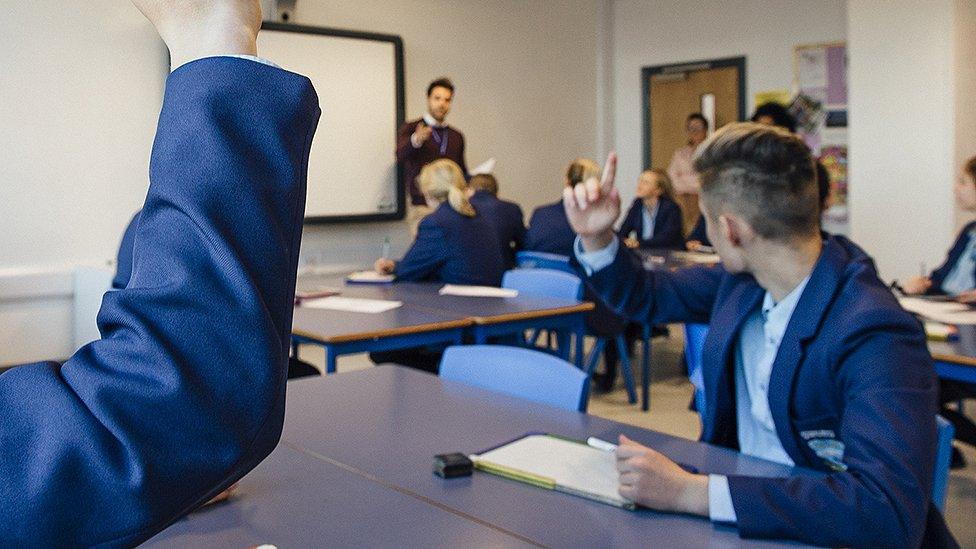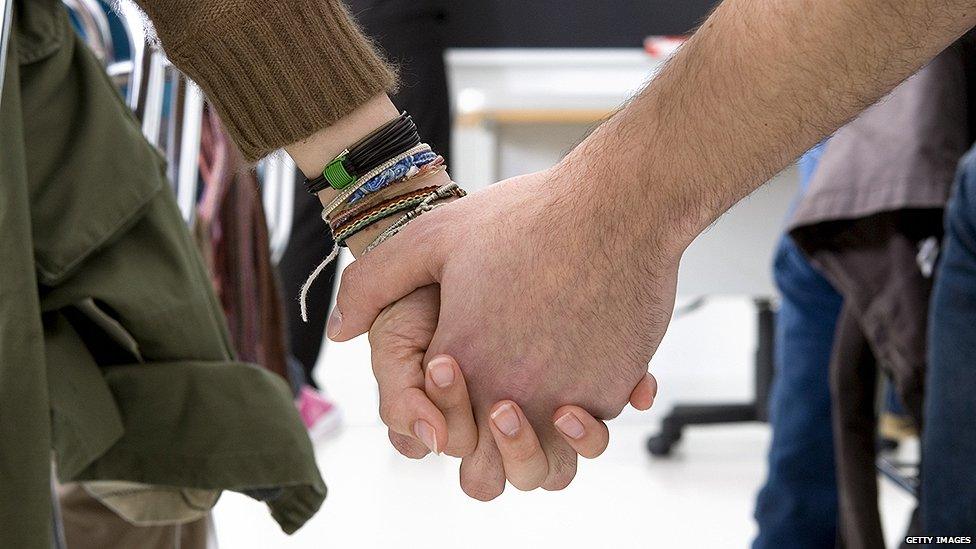'Why compulsory sex education is important to faith schools and LGBTQ pupils'
- Published

The rise in internet porn and sexting has prompted the government to make sex education compulsory in England's schools.
Campaigners are celebrating the ruling, saying giving more children access to sex and relationship information from an early age will be beneficial.
It means faith schools, where sex education has previously been limited, will now teach pupils about sex.
However, parents will still be able to opt children out of these classes.
The ruling is "really important" as it will equip young people with essential information on sex and relationships, Laura Hannah, the education and training manager for leading UK sexual health charity Brook, says.
"We work with young people day in, day out who tell us this is really important to them," she tells Newsbeat.
Laura says the lack in sex education in schools leads many young people to research sex online, leading them to wrong and inappropriate information.
"No one is talking about it, so young people search online for things," she says.
"From that, they get the wrong information or they're accessing pornography at a really young age, which gives them incorrect information around sexual health and relationships."
While the news has been welcomed by Local Government Association and many school leaders, other groups were unhappy.
The organisation Christian Concern said it was not for the state to prescribe what was taught in this area.
Chief executive Andrea Williams told the BBC: "Children need to be protected, and certainly when they're [still at primary school], we need to be guarding their innocence."
The government will hold discussions on what should be taught to children, and at what age, and there will be a public consultation later this year.

Sex education will begin at four years old and will focus on building relationships
Laura says the new ruling will impact greatly on children from communities where sex is a taboo subject in school and at home.
"We work in lots of faith school where young people tell us sex isn't spoken about at home," she says.
"We respect their values but what we want to do is give them information so that when they are ready to have a relationship they can understand the risks and they understand what's available to them."
Already Brook provides sex education that is tailored specifically to faith schools, avoiding certain topics when talking to students.
"If we are working within a faith school, we are often requested not to talk about contraception or condom use," she says.
"What we will do is talk about sexual health services that are available to young people in their area and what's there, so if they chose to use it they're able to access that information."

Sex education in faith schools is tailored to the religious beliefs of the pupils
Laura says a lack of sex education can have a huge impact on young people in later life and says she has encountered young mums in their 20s who have confused their period with a sexually transmitted infection.
"These are women who have had babies," she says. "They've not had sex education and they don't understand how their body works."
Under the new ruling children will begin age-appropriate sex education from the age of four and Laura is keen for a change in language to include LGBTQ pupils in the conversation.
She encourages the use of non-gender specific pronouns during sex education, such as saying partner instead of boyfriend or girlfriend.

Olly Alexander says a teacher taught him "the best way to have safe sex was to not have sex at all"
This week, Olly Alexander from Years & Years spoke about his own experience of sex education at school and revealed how he was left with negative feelings towards sex.
"I didn't understand how men had sex with men," Olly told an audience at a recent National Student Pride conference.
"Gay people didn't exist in my sex education."
Laura says having celebrities such as Olly speaking out helps Brook tailor their sex education to young people.
"If we go in with current information that is relevant to young people, they're going to engage with it better as well," she tells Newsbeat.
She also says that informing young people of LGBTQ issues early on can reduce homophobic bullying in schools.
"The more young people are aware of the topic and they understand it, they will be less likely to be homophobic bullying in schools," she says.
"Young people tell us they are less likely to stereotype or judge someone and are more likely to accept their peers if they come out."
Find us on Instagram at BBCNewsbeat, external and follow us on Snapchat, search for bbc_newsbeat, external